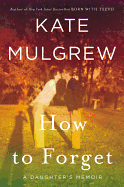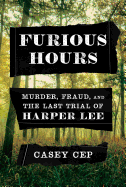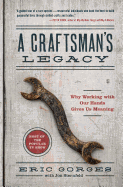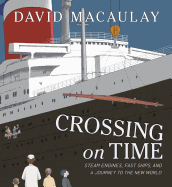Polar Fever
Before space exploration and the moon landing captivated millions, earthbound explorers became famous by journeying to the coldest places on earth. The body of polar literature is vast, but a few recent books have captured the drama--and horror--of these life-and-death journeys.
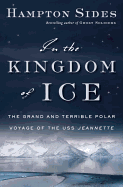 Some of the most lasting and eerie images of polar expeditions are those of ships caught in the ice. In the Kingdom of Ice (Anchor, $17) recounts the plight of the USS Jeanette, which was stuck in the ice for nearly two years after failing to penetrate to a mythical "Open Polar Sea" in the late 19th century. When the ship finally sank off the coast of Siberia, the surviving crew underwent further harrowing trials before only a lucky few were finally rescued.
Some of the most lasting and eerie images of polar expeditions are those of ships caught in the ice. In the Kingdom of Ice (Anchor, $17) recounts the plight of the USS Jeanette, which was stuck in the ice for nearly two years after failing to penetrate to a mythical "Open Polar Sea" in the late 19th century. When the ship finally sank off the coast of Siberia, the surviving crew underwent further harrowing trials before only a lucky few were finally rescued.
 One of the more grimly fascinating aspects of polar exploration is the thin line between success and catastrophe. Alone on the Ice (W.W. Norton, $16.95) is a more southerly illustration of that fact, telling the story of an expedition leader named Douglas Mawson, who in 1913 plunged through a snow bridge into an Antarctic chasm. His eventual survival was as miraculous as it was gruesome, rendering him unrecognizable to fellow team members.
One of the more grimly fascinating aspects of polar exploration is the thin line between success and catastrophe. Alone on the Ice (W.W. Norton, $16.95) is a more southerly illustration of that fact, telling the story of an expedition leader named Douglas Mawson, who in 1913 plunged through a snow bridge into an Antarctic chasm. His eventual survival was as miraculous as it was gruesome, rendering him unrecognizable to fellow team members.
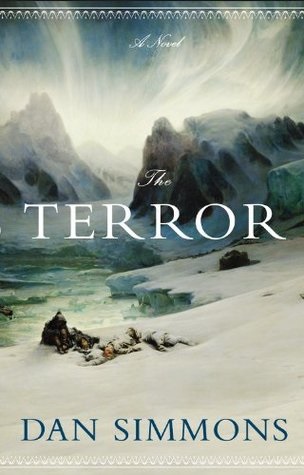 Dan Simmons cleverly mixes real and supernatural horror in his novel The Terror (Back Bay, $18.99). Later adapted into an equally powerful television series, The Terror provides a fictional explanation for a real-life expedition's famous disappearance in the Arctic, adding a monstrous creature to Captain Franklin and crew's many worries. These fictional and nonfictional narratives capture how quickly the promise of the poles could curdle into terrible misfortune.
Dan Simmons cleverly mixes real and supernatural horror in his novel The Terror (Back Bay, $18.99). Later adapted into an equally powerful television series, The Terror provides a fictional explanation for a real-life expedition's famous disappearance in the Arctic, adding a monstrous creature to Captain Franklin and crew's many worries. These fictional and nonfictional narratives capture how quickly the promise of the poles could curdle into terrible misfortune.




 Book you're an evangelist for:
Book you're an evangelist for: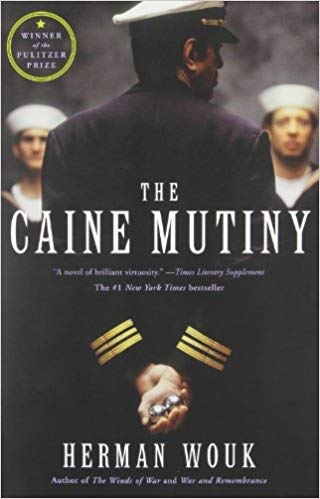 Historical fiction author Herman Wouk died last week at age 103. He is best known for The Caine Mutiny (1951) and the two-part World War II epic The Winds of War (1971) and War and Remembrance (1978). Wouk's first novel, Aurora Dawn, was published in 1947 and his memoir, Sailor and Fiddler: Reflections of a 100-Year-old Author, was released in 2016, the year he turned 100. The Caine Mutiny was based partly on Wouk's own experiences as a sailor in the Pacific Theater of World War II. It sold more than three million copies in the U.S., won the Pulitzer Prize for fiction in 1952 and was adapted into a movie in 1954 starring Humphrey Bogart as Philip Francis Queeg, the incompetent leader of a destroyer relieved of command by disgruntled officers. Wouk also adapted the courtroom sections of the novel into a hit Broadway play, The Caine Mutiny Court-Martial, which opened the same year as the film. The Winds of War and War and Remembrance were adapted into successful television miniseries in the 1980s. Marjorie Morningstar, about a young Jewish woman who dreams of becoming an actress, was made into a 1958 movie starring Natalie Wood and Gene Kelly.
Historical fiction author Herman Wouk died last week at age 103. He is best known for The Caine Mutiny (1951) and the two-part World War II epic The Winds of War (1971) and War and Remembrance (1978). Wouk's first novel, Aurora Dawn, was published in 1947 and his memoir, Sailor and Fiddler: Reflections of a 100-Year-old Author, was released in 2016, the year he turned 100. The Caine Mutiny was based partly on Wouk's own experiences as a sailor in the Pacific Theater of World War II. It sold more than three million copies in the U.S., won the Pulitzer Prize for fiction in 1952 and was adapted into a movie in 1954 starring Humphrey Bogart as Philip Francis Queeg, the incompetent leader of a destroyer relieved of command by disgruntled officers. Wouk also adapted the courtroom sections of the novel into a hit Broadway play, The Caine Mutiny Court-Martial, which opened the same year as the film. The Winds of War and War and Remembrance were adapted into successful television miniseries in the 1980s. Marjorie Morningstar, about a young Jewish woman who dreams of becoming an actress, was made into a 1958 movie starring Natalie Wood and Gene Kelly. 



